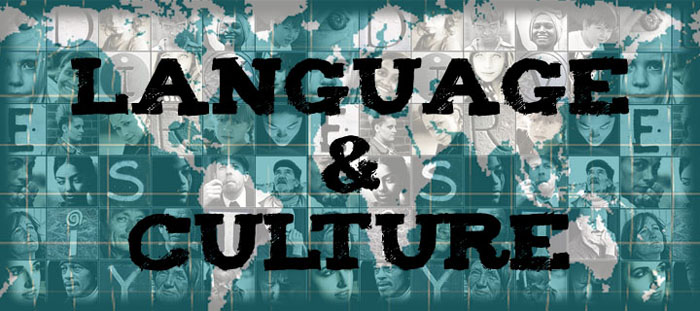Published by ConservativeHome
 I caught sight of a tweet yesterday by the Shadow Culture Secretary Harriet Harman. It was, perhaps unsurprisingly, critical of the Culture Secretary Maria Miller, who had apparently cast the “‘shameful slur that arts community ‘disingenuous’ & their concerns ‘pure fiction’”. I enquired of the context and, to my surprise, Ms Harman responded swiftly with a link to an article by the Culture Secretary which appeared in the Evening Standard in November last year.
I caught sight of a tweet yesterday by the Shadow Culture Secretary Harriet Harman. It was, perhaps unsurprisingly, critical of the Culture Secretary Maria Miller, who had apparently cast the “‘shameful slur that arts community ‘disingenuous’ & their concerns ‘pure fiction’”. I enquired of the context and, to my surprise, Ms Harman responded swiftly with a link to an article by the Culture Secretary which appeared in the Evening Standard in November last year.
I don’t quite know why it’s taken a quarter of a year for Ms Harman to decide to get upset about this, but – I think for the first time in my life – I find myself agreeing with her. If this article was written by Maria Miller personally, she seems purposely to perpetuate the myth that Conservatives are basically all philistines who don’t quite “get” the Arts. If it was written by a civil-service aide, he (or she) deserves something of a reprimand – even after
the space of three months.
You don’t dismiss artistic royalty like Sir Nicholas Hytner, Danny Boyle, Stephen Fry and Stephen Daldry as the “Arts lobby”. It’s a rather distasteful derogative: as Minister for Equalities (as she also is) she would never refer to Sir Ian McKellen, Peter Tatchell and Stephen Fry as the “Gay lobby”. The juxtaposition is manifestly scornful and insensitive: tagging “lobby” onto anything these days is a purposeful defamation – a bit like the “right wing” epithet so favoured of the BBC.
Artists tend to begin with the act of creation: theirs is the language of dreams and imagination; of rainbows, harmonies, movements and metaphors all wrapped up in wonder and magic. But Maria Miller begins with “spending plans” and “budget cuts”, like most Tories do. She may be right that the Arts are not “at risk” under this Government, but you don’t persuade artists of this truth with blasts of economic rhetoric.
And then she writes: “We have worked with the Arts Council to ensure that frontline arts organisations have their budgets cut by no more than 15 per cent over the next four years”.
What is this “no more than”? Is it morally right or well-grounded to talk of “only” or “no more than” when cuts of 15 per cent mean the curtailing or diminishing of around 200 worthy artistic projects which in turn will mean the pruning or complete snuffing out of some very talented artists? For theatres, this is the difference between staging six plays in a season, or five. For orchestras, it means replacing a European tour with a UK one. 15 per cent may seem a modest and reasonable figure when set against a police budget cut of 20 per cent, but it’s not the sort of discourse that persuades most artists. Law enforcement keeps you safe; the Arts give you life.
Personally, I’m acquainted with the realities of the economics: Maria Miller doesn’t need
to persuade me (or probably any ConHome reader) of how generously the Arts are funded (to the tune of £2.9 billion); how philanthropy is encouraged; or how reforms to the National Lottery funding formula will pump about £90 million back into the creative world. But to berate artistic concerns as “pure fiction”; and to accuse artists of being “disingenuous in the extreme” is just crass politics. Harriet Harman is right to ask for an apology.
You simply wouldn’t hear the Minister for Women and Equalities talking of women or minority groups in such strident terms. Consider: “Much of what we’re hearing from the LGBT community is pure fiction”; or “Accusations from women that this Government neither likes nor supports them are disingenuous in the extreme”; or “It is perhaps not surprising that the Muslim lobby is becoming more vocal”.
The skilful politician will use language to bring order out of chaos; to speak reason to the cacophony of splintered voices. In a democracy, the political discourse demands sensitivity to diversity, and that demands the learning of new languages. Sometimes that is literal, as with Panjabi, Arabic or Polish, for example. At others it requires the intelligent use of words: the language of economic modernism and logical positivism is simply bewildering to the relativist postmodernists who cling to subjective experience and multiple
realities.
And I’m not saying that artists lack the intelligence to grasp basic literacy and numeracy: it’s a question of communicating sensitive truths about the world in an objective way. Language is a cultural creation: it shapes the way we think. Meaning is therefore a social construction, and the intelligent communicator will be able to distinguish between the word, the meaning, and its likely reception.
For the conservative, the Arts are intrinsic to and inseparable from our common humanity. Culture is worth conserving because it is linked closely to our identity – individual and in community. All the world’s a stage, and that same world is a text, or a canon of intertextuality. Since language is bound up with culture, it is difficult to escape its limits or demands. But it makes no sense at all to impose upon actors, musicians, poets and playwrights the stark language of economic oppression and political exploitation. When did you last hear an arts minister talk about freedom, creation, inspiration and cultural
consciousness?
